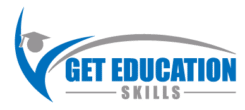Navigating the Essential Aspects of Education: A Comprehensive Guide
Navigating the Essential Aspects of Education: A Comprehensive Guide
Blog Article

Education is a cornerstone of personal and professional development, encompassing various elements from foundational skills and examinations to career planning and college preparation. This guide explores essential aspects of education, providing valuable insights for students, educators, and career seekers.
1. The Significance of Education
Education is the structured process through which individuals acquire knowledge, skills, values, and attitudes. It spans multiple stages, from early childhood education to higher education and beyond, serving as a foundation for personal growth and societal progress. A robust education system helps individuals develop critical thinking, adaptability, and a deeper understanding of the world.
2. Key Education Skills
To excel in education and beyond, certain skills are vital:
Critical Thinking: The ability to analyze and evaluate information logically and make informed decisions.
Effective Communication: Expressing ideas clearly and persuasively in both written and verbal forms.
Problem-Solving: Identifying challenges and finding effective solutions.
Time Management: Organizing and prioritizing tasks to meet deadlines and achieve goals.
Digital Literacy: Using technology effectively to enhance learning and productivity.
Developing these skills not only supports academic success but also prepares individuals for various professional and personal challenges.
3. Examination Strategies
Exams are a key component of the educational process, designed to assess students’ knowledge and understanding. Common types of exams include:
Standardized Tests: Assess performance against a common set of standards.
Quizzes and Midterms: Regular evaluations to track ongoing progress and comprehension.
Final Exams: Comprehensive assessments that cover material from an entire course or academic term.
Effective exam preparation involves creating a study schedule, practicing with sample questions, and employing test-taking strategies. Consistent study habits and stress management techniques are crucial for optimal performance.
4. Career Planning
Career planning is essential for achieving long-term professional goals. It involves:
Self-Assessment: Identifying personal strengths, interests, and career aspirations.
Career Exploration: Researching various career paths and understanding job requirements and market trends.
Skill Development: Acquiring relevant qualifications and experience for desired career paths.
Networking: Building professional relationships and seeking mentorship opportunities.
Career planning is an ongoing process that requires continual learning and adaptability to evolving interests and market conditions.
5. Utilizing Online Career Resources
The digital era has transformed how we explore and advance in careers. Key online resources include:
Job Portals: Websites where job listings are posted and applications are managed.
Professional Networking Sites: Platforms like LinkedIn for networking and job searching.
Online Learning Platforms: Resources for acquiring new skills and certifications.
Leveraging these online tools can enhance job search efforts and career development opportunities.
6. Preparing for College
College represents a significant step in higher education, offering specialized knowledge and personal growth opportunities. Important aspects include:
Researching Colleges: Evaluating institutions based on academic programs, campus culture, and location.
Application Process: Preparing and submitting applications, including personal statements and recommendation letters.
Financial Planning: Understanding tuition costs and exploring financial aid options.
Effective college preparation can greatly influence future academic and career success.
7. Supporting Educators
Teachers play a crucial role in shaping students’ educational experiences. Effective teaching geteducationskills involves:
Lesson Planning: Designing engaging and educational lessons.
Classroom Management: Creating a supportive and productive learning environment.
Student Assessment: Evaluating and providing feedback on students’ progress.
Providing educators with necessary resources and professional development opportunities is essential for fostering a positive learning environment.
8. The Role of General Education
General education provides a broad knowledge base and essential skills. It includes:
Literacy and Numeracy: Fundamental skills in reading, writing, and mathematics.
Social Studies: Knowledge of history, geography, and civic responsibilities.
Science and Technology: Understanding scientific principles and technological advancements.
A strong foundation in general education prepares individuals for diverse life and career opportunities.
Conclusion
Education is a multifaceted journey that extends beyond traditional classroom learning. By focusing on developing essential skills, mastering examination strategies, planning careers effectively, and utilizing online resources, individuals can enhance their educational experiences and achieve greater success. For more information and resources on these topics, visit Get Education Skills.